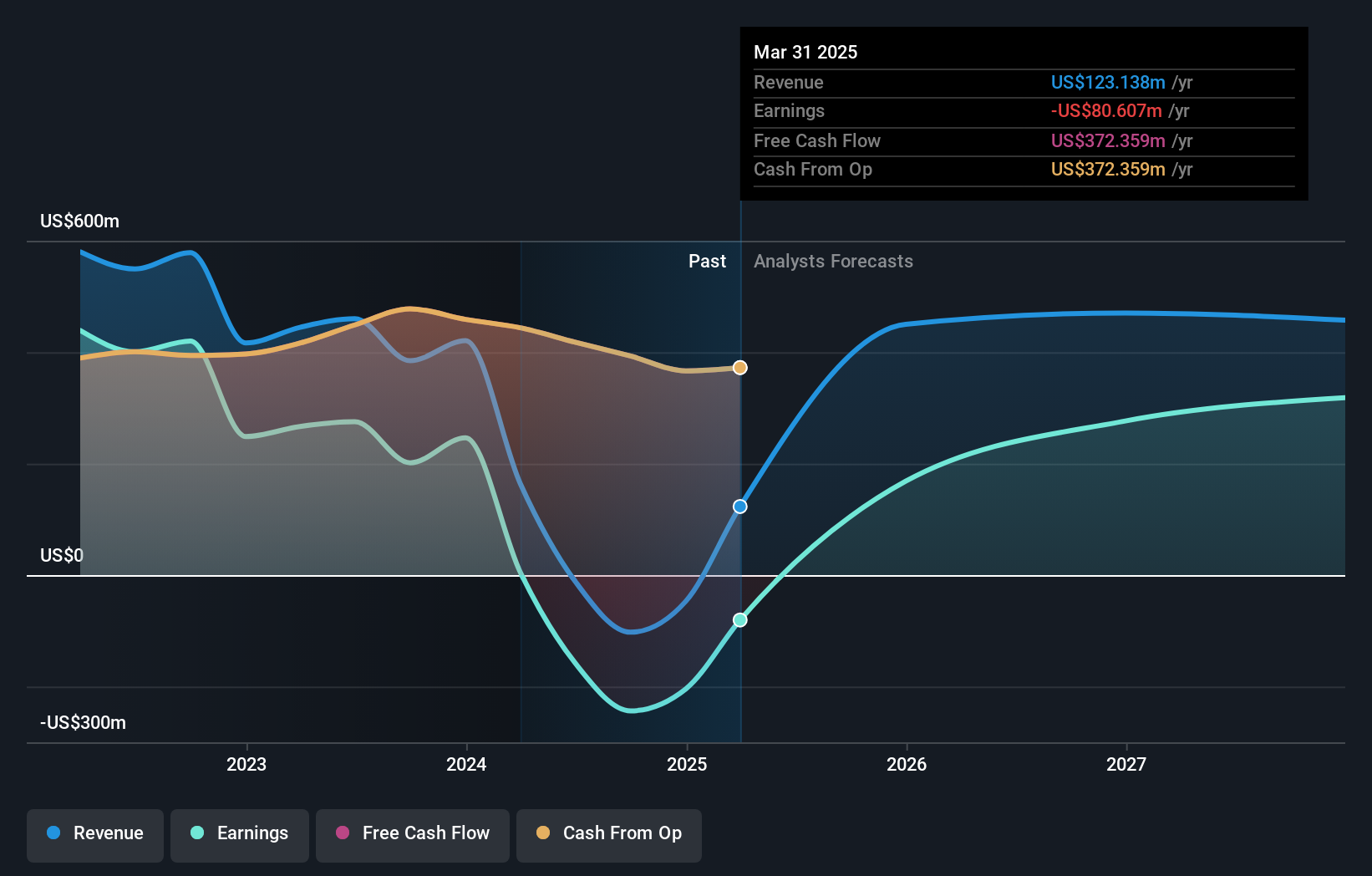Institutional investors have a lot riding on Blackstone Mortgage Trust, Inc. (NYSE:BXMT) with 62% ownership
Key Insights
- Institutions' substantial holdings in Blackstone Mortgage Trust implies that they have significant influence over the company's share price
- The top 15 shareholders own 50% of the company
- Insiders have been buying lately
To get a sense of who is truly in control of Blackstone Mortgage Trust, Inc. (NYSE:BXMT), it is important to understand the ownership structure of the business. The group holding the most number of shares in the company, around 62% to be precise, is institutions. Put another way, the group faces the maximum upside potential (or downside risk).
And last week, institutional investors ended up benefitting the most after the company hit US$3.2b in market cap. One-year return to shareholders is currently 26% and last week’s gain was the icing on the cake.
Let's take a closer look to see what the different types of shareholders can tell us about Blackstone Mortgage Trust.
View our latest analysis for Blackstone Mortgage Trust

What Does The Institutional Ownership Tell Us About Blackstone Mortgage Trust?
Many institutions measure their performance against an index that approximates the local market. So they usually pay more attention to companies that are included in major indices.
Blackstone Mortgage Trust already has institutions on the share registry. Indeed, they own a respectable stake in the company. This can indicate that the company has a certain degree of credibility in the investment community. However, it is best to be wary of relying on the supposed validation that comes with institutional investors. They too, get it wrong sometimes. If multiple institutions change their view on a stock at the same time, you could see the share price drop fast. It's therefore worth looking at Blackstone Mortgage Trust's earnings history below. Of course, the future is what really matters.

Institutional investors own over 50% of the company, so together than can probably strongly influence board decisions. Hedge funds don't have many shares in Blackstone Mortgage Trust. Our data shows that BlackRock, Inc. is the largest shareholder with 17% of shares outstanding. The Vanguard Group, Inc. is the second largest shareholder owning 11% of common stock, and Blackstone Inc. holds about 5.1% of the company stock.
A closer look at our ownership figures suggests that the top 15 shareholders have a combined ownership of 50% implying that no single shareholder has a majority.
While studying institutional ownership for a company can add value to your research, it is also a good practice to research analyst recommendations to get a deeper understand of a stock's expected performance. There are plenty of analysts covering the stock, so it might be worth seeing what they are forecasting, too.
Insider Ownership Of Blackstone Mortgage Trust
The definition of an insider can differ slightly between different countries, but members of the board of directors always count. Management ultimately answers to the board. However, it is not uncommon for managers to be executive board members, especially if they are a founder or the CEO.
I generally consider insider ownership to be a good thing. However, on some occasions it makes it more difficult for other shareholders to hold the board accountable for decisions.
We can report that insiders do own shares in Blackstone Mortgage Trust, Inc.. It is a pretty big company, so it is generally a positive to see some potentially meaningful alignment. In this case, they own around US$38m worth of shares (at current prices). If you would like to explore the question of insider alignment, you can click here to see if insiders have been buying or selling.
General Public Ownership
With a 31% ownership, the general public, mostly comprising of individual investors, have some degree of sway over Blackstone Mortgage Trust. This size of ownership, while considerable, may not be enough to change company policy if the decision is not in sync with other large shareholders.
Private Equity Ownership
Private equity firms hold a 5.1% stake in Blackstone Mortgage Trust. This suggests they can be influential in key policy decisions. Sometimes we see private equity stick around for the long term, but generally speaking they have a shorter investment horizon and -- as the name suggests -- don't invest in public companies much. After some time they may look to sell and redeploy capital elsewhere.
Next Steps:
While it is well worth considering the different groups that own a company, there are other factors that are even more important. Be aware that Blackstone Mortgage Trust is showing 2 warning signs in our investment analysis , and 1 of those makes us a bit uncomfortable...
Ultimately the future is most important. You can access this free report on analyst forecasts for the company.
NB: Figures in this article are calculated using data from the last twelve months, which refer to the 12-month period ending on the last date of the month the financial statement is dated. This may not be consistent with full year annual report figures.
Have feedback on this article? Concerned about the content? Get in touch with us directly. Alternatively, email editorial-team (at) simplywallst.com.
This article by Simply Wall St is general in nature. We provide commentary based on historical data and analyst forecasts only using an unbiased methodology and our articles are not intended to be financial advice. It does not constitute a recommendation to buy or sell any stock, and does not take account of your objectives, or your financial situation. We aim to bring you long-term focused analysis driven by fundamental data. Note that our analysis may not factor in the latest price-sensitive company announcements or qualitative material. Simply Wall St has no position in any stocks mentioned.
 Index Options
Index Options State Street
State Street CME Group
CME Group Nasdaq
Nasdaq Cboe
Cboe TradingView
TradingView Wall Street Journal
Wall Street Journal